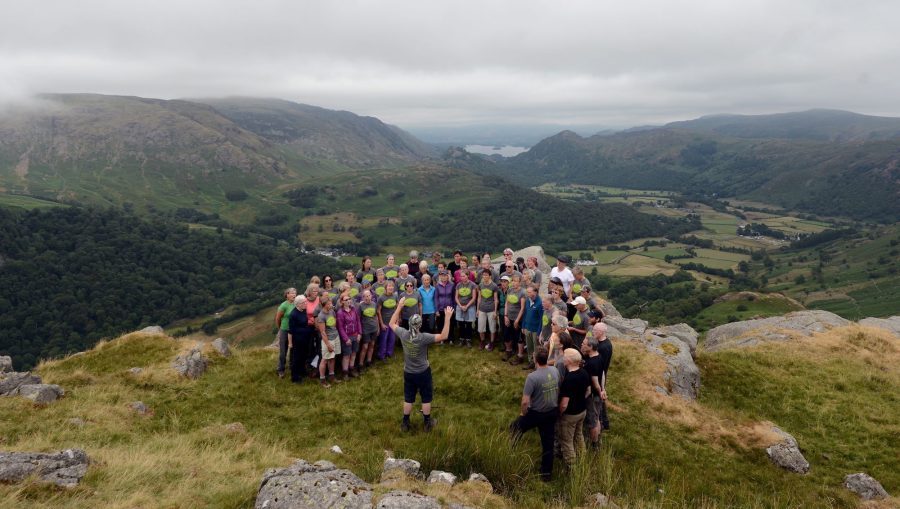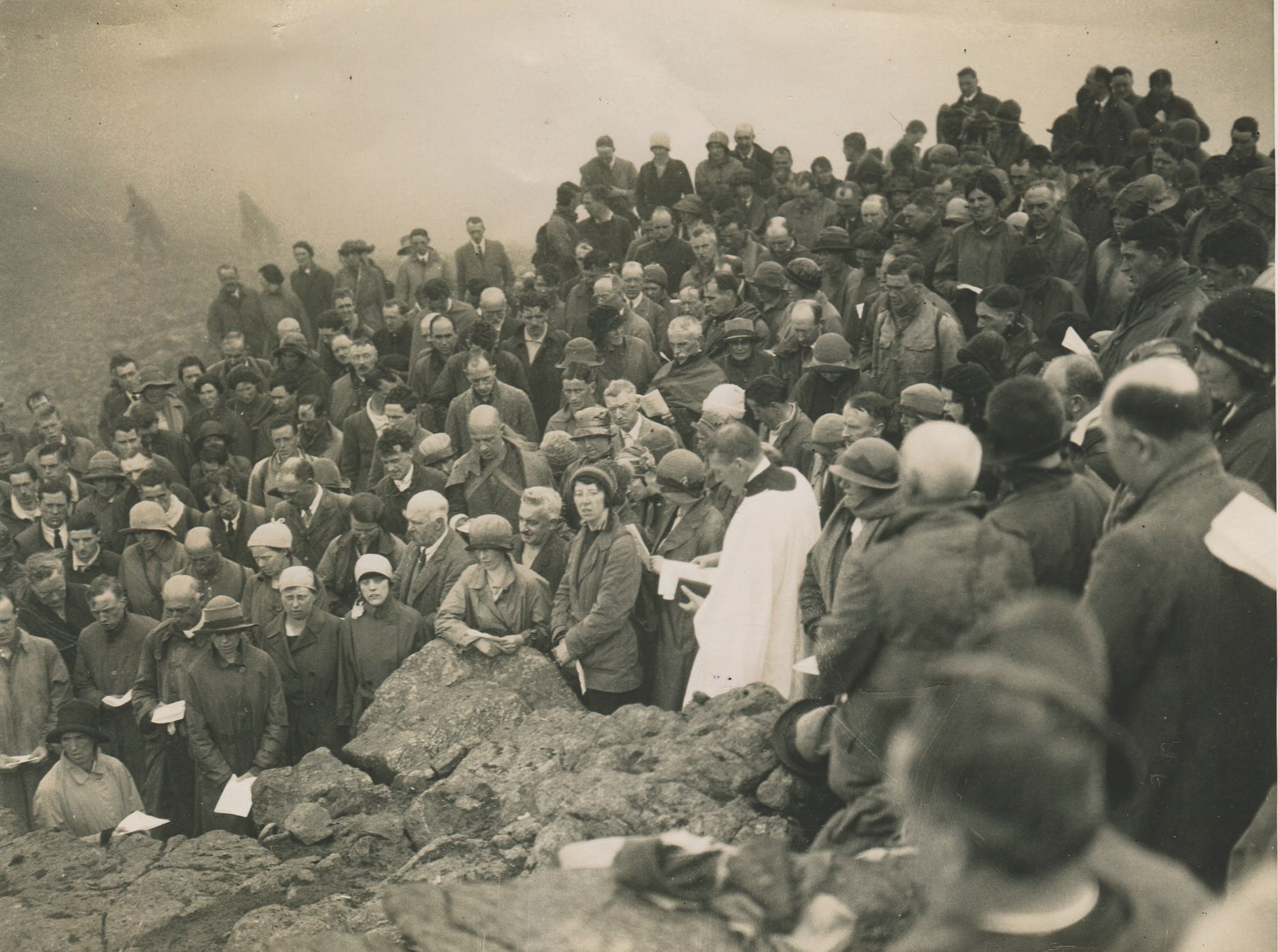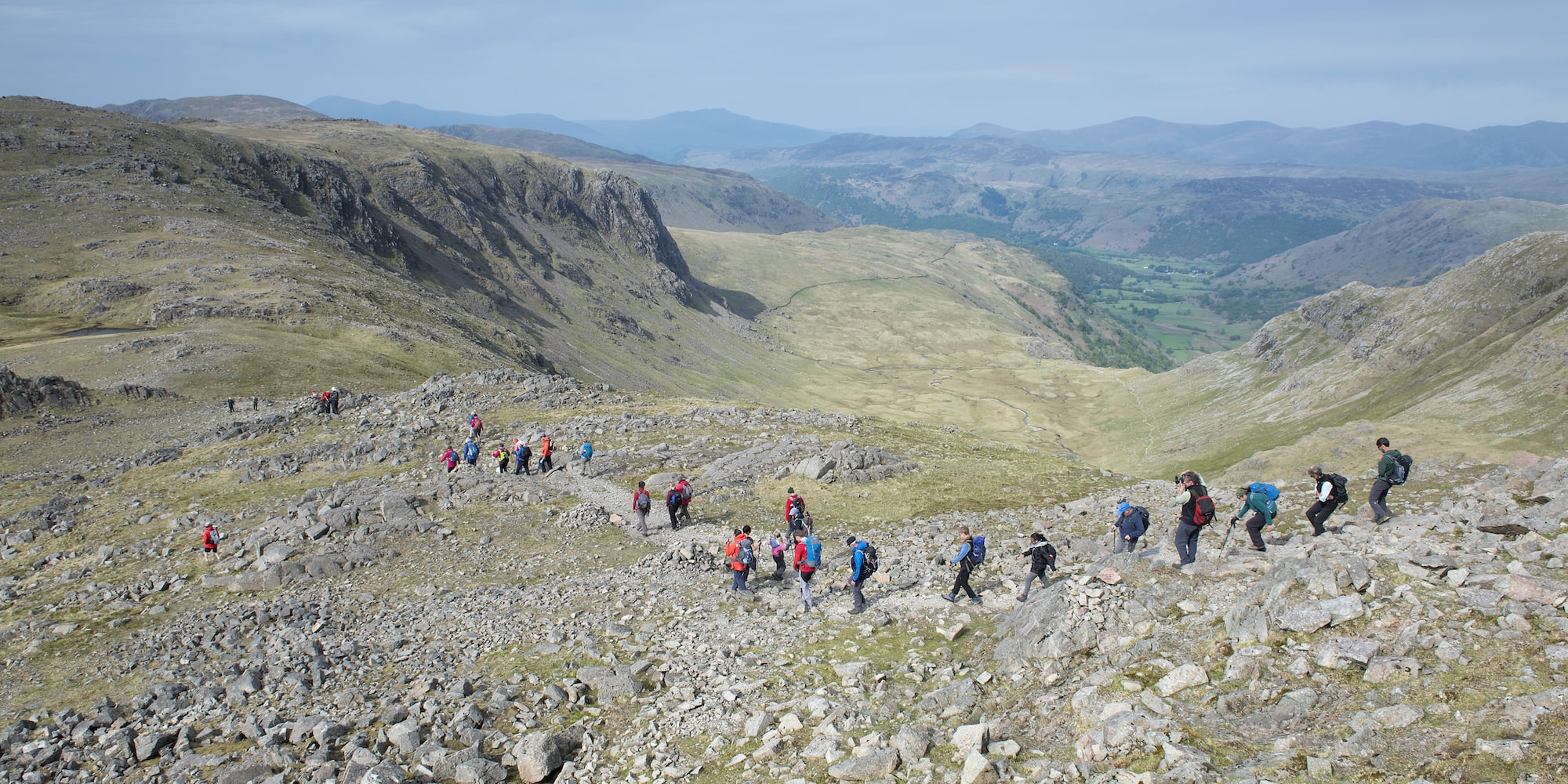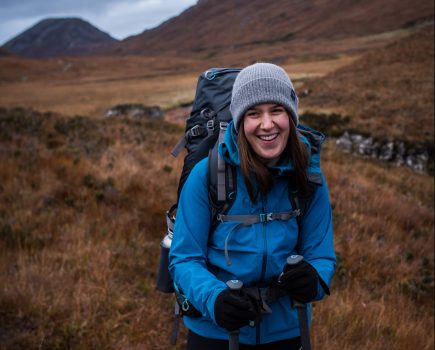Singing tributes to Britain’s war dead across nine of England’s highest peaks concluded last week as a pop-up choir climbed Lake District mountains to honour a unique memorial
The ambitious acts of remembrance took place over three weekends since May on nine Lakeland fells – Great Gable, Green Gable, Brandreth (no performance), Grey Knotts, Lingmell, Scafell Pike, Broad Crag, Thorneythwaite Fell, Glaramara, Allen Crags – to commemorate the Great Gift, a legacy once described as ‘the world’s greatest war memorial’.
More than 60 hardy singers climbed a total of 25 miles and 3,000m of ascent to perform a specially commissioned song on every peak.
14 summits in the Lake District were given to the National Trust in the years after the First World War by the Fell & Rock Climbing Club and private landowners as an act of remembrance.
Jessie Binns, the National Trust’s Visitor Experience Manager in the Lake District, recruited the choir to mark 100 years since the end of the First World War: “These mountains were given as memorials for everyone to enjoy, and the National Trust is extremely proud to have cared for them ever since.
“If everything around you is feeling uncertain and unstable, a connection with the natural world can feel grounding. This is part of the reason it is so important for us to safeguard these and other open spaces, so that future generations can continue to reap the benefits in the years to come.”
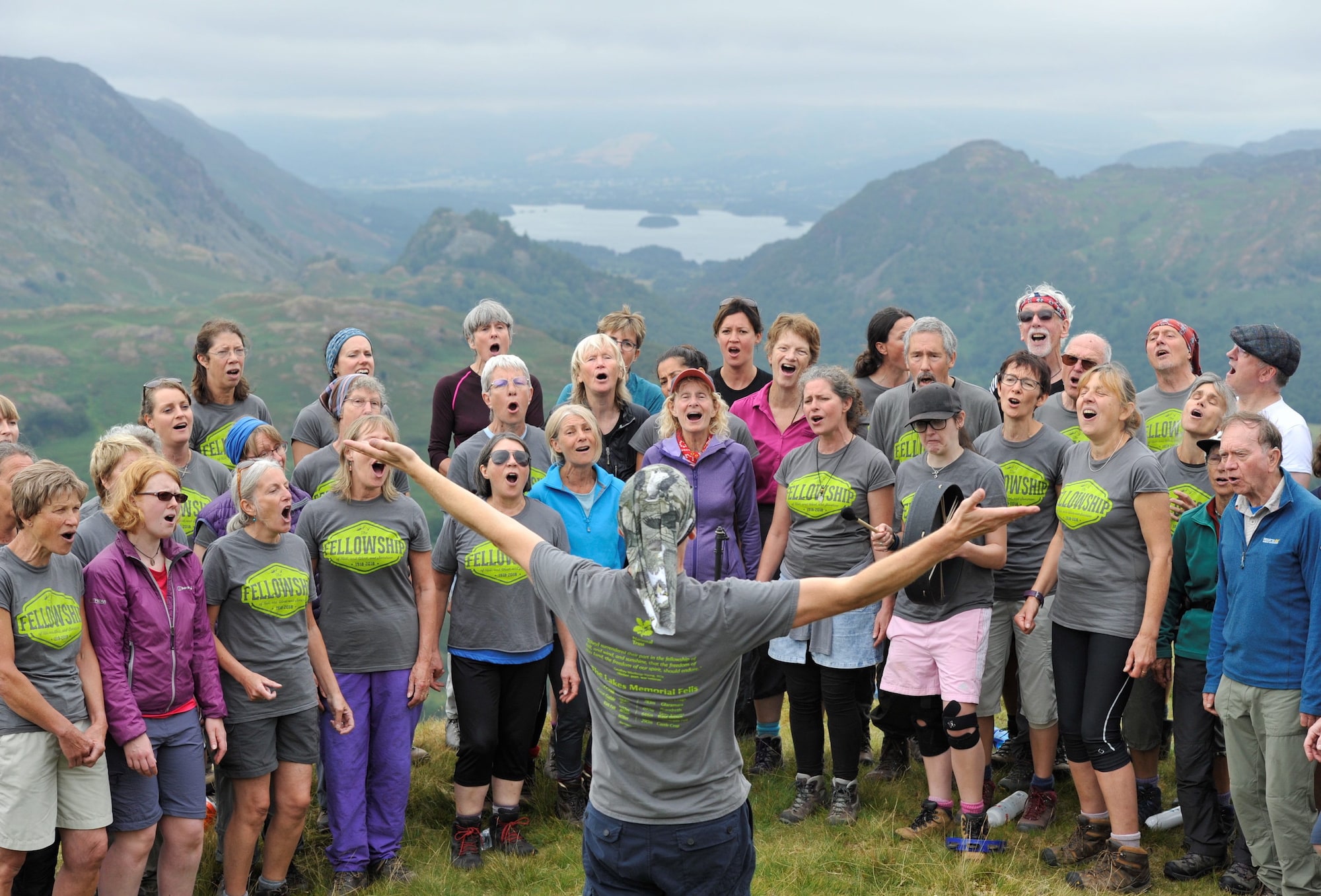
National Trust staff and volunteers commemorating the gift of 14 Lakeland summits through a song cycle on top of Thorneythwaite Fell, led by musical director Dave Camlin. © North News & Pictures
“Meaningful and powerful songs”
The temporary choir, made up of amateur singers from local choirs, is called The Fellowship of Hill, and Wind, and Sunshine. It is named after the speech made by poet and leading mountaineer Geoffrey Winthrop Young, which he delivered on top of Great Gable in 1924 as he dedicated the fells to the nation:
“[they] surrendered their part in the fellowship of hill, and wind, and sunshine, that the freedom of this land, the freedom of our spirit, should endure.”
Cumbrian songwriter, musician and teacher Dr David Camlin created a new suite of songs for the occasion, which included a new arrangement for the words from the dedication speech.
A member of the choir said: “To be able to sing in a choir surrounded by such stunning scenery was a real privilege. It felt incredibly powerful as the sound was carried far across the land by the wind.
“Music helps us to connect – to other people and to nature itself. It helps soothe us in the tough times and shares our joy in the good times.”
During the performance at Great Gable, the choir was filmed by a 360˚ video camera. The resulting film has been used as part of an experiment at Keswick Museum in collaboration with the University of York, to determine whether the benefits of outdoor choir singing could be experienced remotely, using virtual reality technology.
Participants of the experiment wore a headset through which they could experience the panoramic views and sing alone as though part of the choir. Afterwards, participants were asked questions about their mood, as were members of the outdoor choir. Their answers will be compared and recorded to test whether the virtual world can produce the same health and well-being benefits as activities in the real world.
Dr Dave Camlin said: “The real experience of singing meaningful and powerful songs of remembrance in a large choir on a mountain-top was profoundly moving, and we hope that the virtual experience will help people to share in what was a very special moment.”
A wider programme of events
The choir’s performances are part of a wider programme of remembrance events organised by the National Trust in the Lake District this year. In May, a team of the conservation charity’s rangers and volunteers from the Fell & Rock Climbing Club spent a combined 200 days repairing footpaths and rebuilding the summit cairn on top of Scafell Pike.
England’s tallest mountain was given to the Trust by Lord Leconfield in 1919 as a memorial to the men of the Lake District who fell in the Great War, four years before the Fell and Rock Climbing Club made their gift.
At the Lakes Alive Festival (8 – 9 September) there will be performances from the Fellowship choir and singing workshops and at the Kendal Mountain Festival (15 – 18 November) films will be shown, documenting the Great Gift’s lasting legacy.
On 13 October, the National Trust is inviting people to join a singing picnic at Peace How, a tiny hill near Derwent Water in Borrowdale. It was given to the National Trust in 1917 so that servicemen from the trenches could experience peace and tranquillity. Tickets are free but must be booked in advance from the National Trust website.
October is also a last chance to visit the Where Poppies Blow exhibition at Wordsworth House, which explores how men endured the horrors of war through the wonders of nature.
Header image © North News & Pictures

